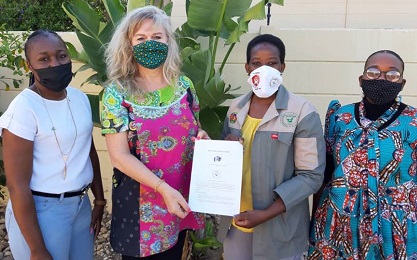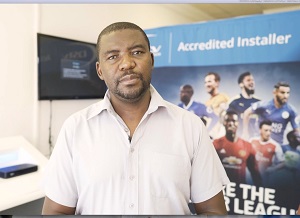
Nedbank’s Conference to amplify the voices of women in media

The Nedbank Women in Media (WiM) conference which will be held on 27 May, has emerged as a transformative space for trailblazing voices to address urgent issues head-on, fostering an environment of empowerment, support, and change.
As the sponsors, Nedbank said the conference breaks barriers, ignites change, and celebrates the power of women’s voices.
“Our commitment to gender equity is more essential than ever, as women in the media industry grapple with gender disparities in leadership, mental health, expert representation, online hostility and harassment, and stereotypical portrayals,” they added.
Communication and Public Relations Manager at Nedbank Namibia, Selma Kaulinge said they are privileged to stand should to shoulder with the Nedbank Women in Media initiative and our sponsorship is an affirmation of our commitment to support and promote gender equality, not just within the media industry but throughout society at large.
This third edition of the WiM conference brings together brilliant women from diverse backgrounds and expertise to connect, exchange ideas and embark on collaborative projects.
“Prepare to be captivated by an exceptional line-up of women leaders who are reshaping the very fabric of the Namibian media industry and influential voices such as CRAN Chief Executive, Emilia Nghikembua, Sasscal Executive Director Dr Jane Olwoch and seasoned journalist Ester Mbathera, will share invaluable insight and experiences on the pertinent issues facing women in the media,” she said.
“When women’s voices are not adequately represented, it perpetuates harmful stereotypes and contributes to gender inequality. Having women’s voices in the media can provide role models for women and girls, encouraging them to pursue their aspirations and break gender barriers,” said co-founder Jemima Beukes.
According to a 2023 report by the Reuters Institute for the Study of Journalism, female journalists often endure online hostility based on their gender and they often attribute a lack of support from news organisations to the prevalent ‘male-led structure’ within the organisation.
Beukes stressed the importance of this conference as it highlights the necessity to change the media landscape for young women coming up, in addition to ensuring the well-being of the media industry.










































